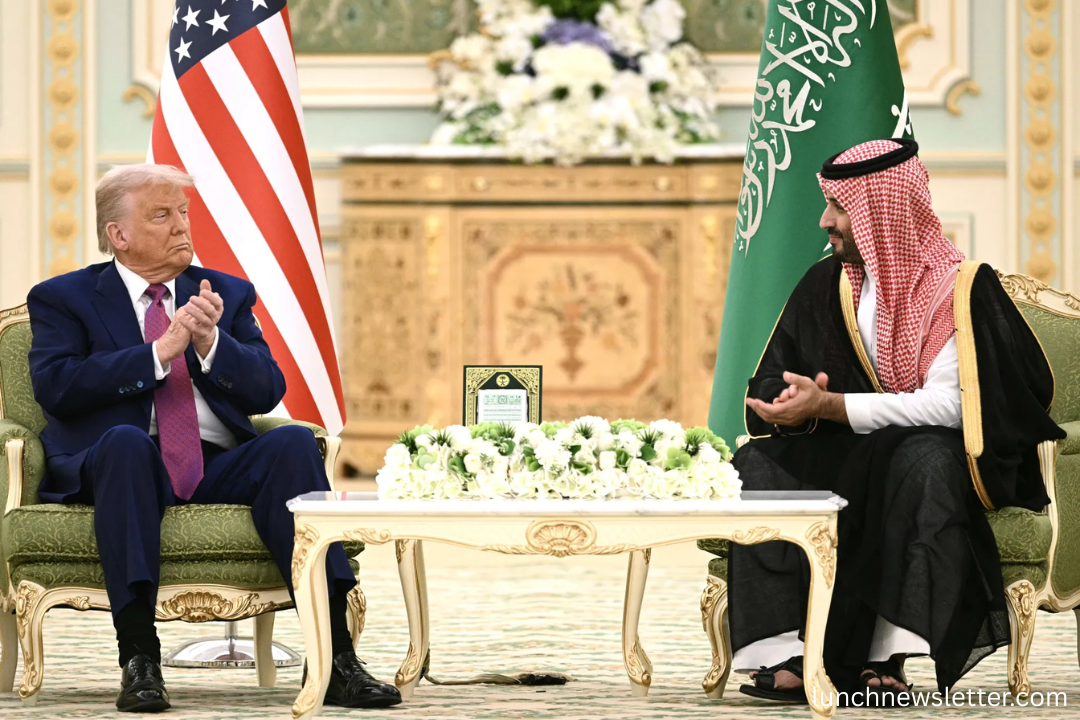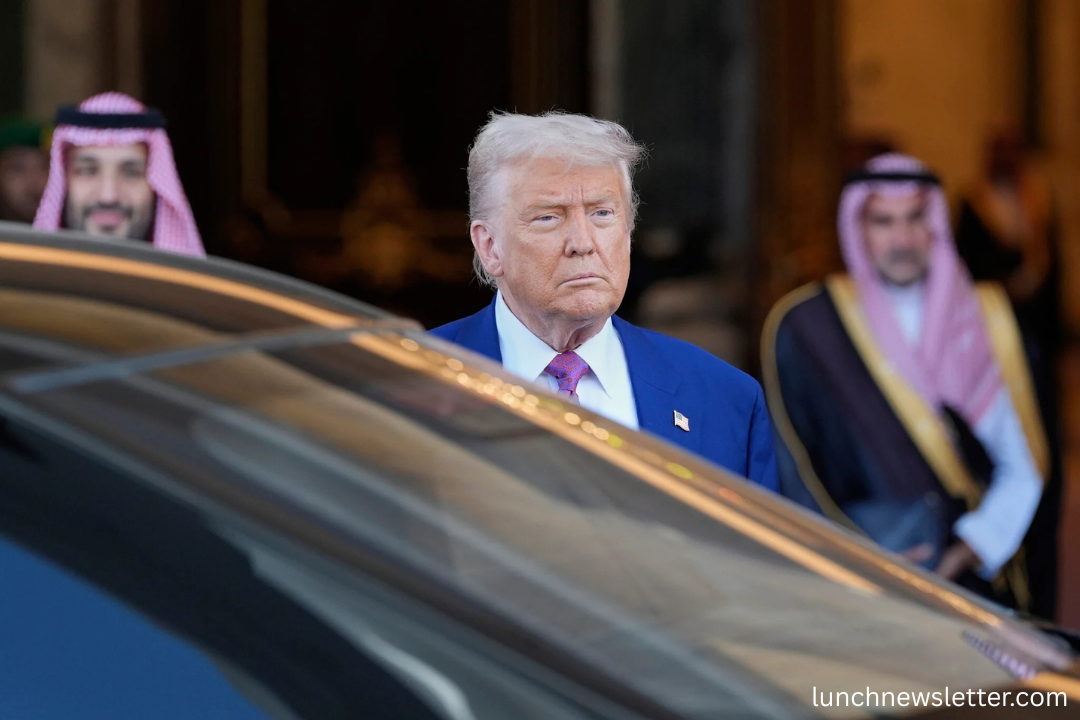President Donald Trump announced the removal of U.S. sanctions on Syria during his Middle East tour in May 2025. This decision signals a new chapter in U.S.-Syria relations and reflects the administration’s broader strategy to recalibrate its approach in the region.
The Legacy of Syria Sanctions
The United States imposed sanctions on Syria over the past decade in response to the Assad regime’s human rights violations and support for terrorism. These measures, including the Caesar Syria Civilian Protection Act of 2019, targeted key sectors such as energy, finance, and construction, aiming to pressure the Syrian government into political reforms. The sanctions severely impacted Syria’s economy, hindering reconstruction efforts and exacerbating humanitarian crises.
The Fall of Assad and the Emergence of New Leadership
In December 2024, the Assad regime collapsed, leading to the rise of interim President Ahmed al-Sharaa. A former opposition figure, al-Sharaa pledged to steer Syria toward democracy, rebuild the nation’s infrastructure, and reestablish international relations. His leadership has been met with cautious optimism from global powers, including the United States.
Trump’s Announcement – Lifting Syria Sanctions
During a speech in Riyadh on May 13, 2025, President Trump declared the lifting of all U.S. sanctions on Syria. He emphasized that the Syrian people had “endured enough disasters, wars, and killing” and that the U.S. was ready to support the nation’s reconstruction and political transition. This move aligns with Trump’s broader strategy to foster economic partnerships and reduce military interventions in the Middle East.
International Reactions and Diplomatic Implications
The decision to lift Syria sanctions has garnered mixed reactions globally. Allies such as Saudi Arabia, Turkey, and Qatar have expressed support, viewing it as a step towards regional stability. The European Union also eased certain sanctions, particularly in energy and banking sectors, to facilitate humanitarian aid and reconstruction.
However, some U.S. lawmakers and human rights organizations have raised concerns about the potential for premature normalization without concrete reforms from the Syrian government. They emphasize the need for accountability and assurances that the new leadership will uphold human rights and democratic principles.
Economic Prospects and Reconstruction Efforts
The removal of Syria sanctions opens avenues for international investment and economic revitalization. President al-Sharaa has outlined plans to rebuild critical infrastructure, including healthcare, education, and transportation systems. Gulf nations have pledged financial support, and discussions are underway with global corporations to participate in reconstruction projects.
This economic engagement, by addressing underlying socio-economic grievances, is expected to create job opportunities, reduce poverty, and deter the resurgence of extremist groups.
Strategic Considerations and Future Outlook

The U.S. decision to lift Syria sanctions reflects a strategic recalibration in foreign policy, emphasizing diplomacy and economic collaboration over military involvement. By supporting Syria’s transition, the U.S. aims to strengthen its influence in the Middle East and counter the growing presence of rival powers such as Russia and Iran.
Moving forward, the success of this policy shift will depend on the Syrian government’s commitment to democratic reforms, the effectiveness of reconstruction efforts, and the ability of international partners to coordinate support while ensuring accountability.
Frequently Asked Questions (FAQ’s)
What are Syria sanctions, and why were they imposed?
Syria sanctions were economic and political measures imposed primarily by the U.S. to pressure the Assad regime over human rights violations, the use of chemical weapons, and support for terrorism. They targeted Syria’s oil, banking, and construction sectors.
Why did the White House remove sanctions on Syria?
The White House lifted Syria sanctions as part of a diplomatic shift following the fall of the Assad regime and the rise of a transitional government. The move is intended to support reconstruction and promote regional stability.
Who is leading Syria now after Assad?
After the collapse of the Assad regime, interim President Ahmed al-Sharaa took over leadership in Syria. He is a former opposition leader advocating for democratic reforms and international cooperation.
How does lifting Syria sanctions benefit the U.S.?
By removing Syria sanctions, the U.S. hopes to open new economic opportunities, reduce tensions in the region, and strengthen diplomatic ties while countering the influence of rivals like Iran and Russia.
Are there any risks associated with lifting the sanctions?
Yes, critics warn that removing sanctions too soon may allow former regime loyalists to regain power or delay democratic reforms. Human rights organizations urge ongoing oversight and conditional support.
How does this affect U.S. relations with Middle Eastern allies?
Allies like Saudi Arabia and Turkey have welcomed the lifting of the sanctions. They see it as a signal of renewed U.S. commitment to supporting peaceful development and cooperation in the region.
Will humanitarian aid increase in Syria after sanctions are lifted?
Yes, lifting the sanctions is expected to ease restrictions on international aid, allowing for more excellent humanitarian relief, healthcare support, and infrastructure rebuilding efforts across Syria.
What happens if the new Syrian government fails to reform?
If Syria’s transitional government fails to meet expectations for democratic governance and human rights, the U.S. and its allies could reimpose sanctions or take alternative diplomatic actions to encourage compliance.
Conclusion
The removal of Syria sanctions marks a pivotal shift in the White House’s foreign relations strategy. As President Trump pivots from military engagement to diplomatic outreach, the decision to end Syria sanctions underscores a new era of geopolitical recalibration. While the move offers hope for economic recovery and democratic reform in Syria, it also raises important questions about accountability, long-term stability, and U.S. credibility on the global stage. Ongoing engagement, careful monitoring, and multilateral cooperation will be key to ensuring that lifting Syria sanctions contributes positively to both regional peace and U.S. strategic interests. As this policy evolves, the world will be watching how the White House balances pragmatism with principle.
